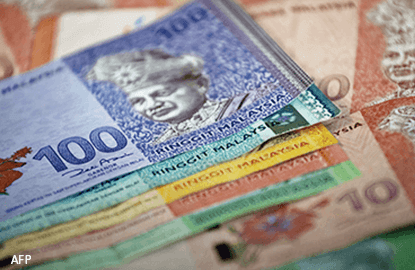
This article first appeared in The Edge Financial Daily, on October 26, 2015.
KUALA LUMPUR: Concerns about the weakening ringgit are likely to persist so long as the political noise surrounding 1Malaysia Development Bhd (1MDB) remains, said Bank of America Merrill Lynch (BofA Merrill Lynch) head of Asean economics Dr Chua Hak Bin.
He said while there is a break for the national currency at the moment on relief that the US Federal Reserve won't raise interest rates this year, Malaysia is still somewhat vulnerable to external shocks, in addition to concerns about 1MDB.
“My concern (the weakening ringgit) is still with the falling commodity prices, the very high external debt position as reflected in the foreign ownership of Malaysian government securities (MGS), and the high leverage of households,” Chua told reporters after the 2016 post-budget dialogue that was jointly organised by the Malaysian Economic Association and the Faculty of Economics and Administration, on Saturday.
Foreign ownership of MGS declined from 48.5% of total outstanding MGS in June to around 44.1% in September 2015, according to data compiled by Bank Negara Malaysia.
Chua warned that the ringgit risks further depreciation until the uncertainties surrounding the troubled 1MDB are resolved.
“The current political crisis is something which a lot of foreign investors are constantly asking about because it is difficult for them to fully understand what is going on,” he said.
On the subject of the Trans-Pacific Partnership (TPP) agreement involving 12 countries including Malaysia, Chua is in favour of Malaysia joining the trade pact, which he believes is a positive move for the country.
“It is a very exclusive club to be a part of, and foreign direct investments into Malaysia will rise considerably.
“We will [also] have direct access into some sensitive sectors in the US and Japanese markets,” he said.
Chua said that the TPP agreement will see some of the most liberal relaxation of barriers, and will be able to put Malaysia on a stronger and more competitive position. He noted that free trade agreements with other countries in the past had shown an overall big net positive for the country.
“The TPP agreement would also unleash a lot of dynamism and give Malaysia a certain advantage, as the TPP countries represent 40% of world gross domestic product (GDP) and one-third of trade, and that is quite considerable.
“It will also reduce certain cost of items in Malaysia such as cars,” he said.
Chua is also of the view that the government is likely to miss its budget deficit target of 3.1% in 2016, from an estimated 3.2% this year, as he deems the target to collect RM39 billion under the goods and services tax in 2016 as “ambitious in a slowing economy”.
BofA Merrill Lynch expects the national deficit to be at 3.5% of the GDP next year.
“Oil prices remain volatile, and there are a lot of uncertainties with not much wriggle room. The incremental change next year would be much tougher,” added Chua.